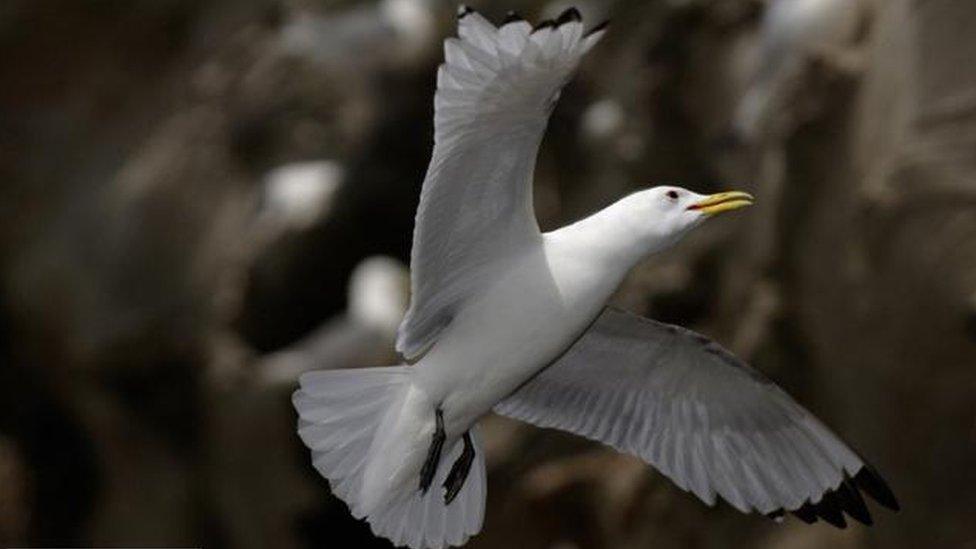Endangered birds' 'miserable deaths' in Newcastle netting
- Published
Endangered kittiwakes dying due to anti-bird netting
Endangered gulls are dying "horrible, long, miserable deaths" in netting installed on buildings to stop birds nesting, it has been claimed.
TV presenter Chris Packham said kittiwakes are "becoming entangled" in the netting on Newcastle's Quayside.
More than 8,000 people have signed a petition, external for the nets to be removed from two businesses.
Premier Inn Quayside said it has asked the building's owners how they plan to resolve the issue.
Aveika, a neighbouring restaurant, has not yet responded to the BBC.
Naturalist Packham said: "Photographers have been out taking some pretty miserable photographs of these young birds suffering."
He said it was an offence to leave in place any device "that's calculated to cause bodily injury to any bird" and that the nets should be removed.
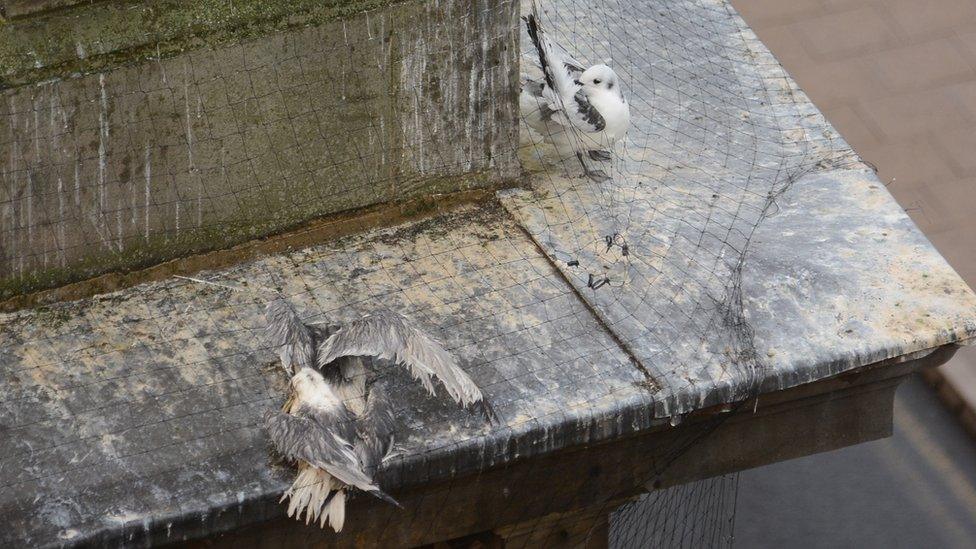
Birds have become trapped in the netting on buildings on Lombard Street in Newcastle
North East wildlife photographer Alan Hewitt first spotted one of the "massively endangered" birds stuck in the netting on Lombard Street in April.
He said: "The netting was at an advanced stage of being set up and I think I photographed one of the first kittiwakes to be found dead unfortunately.
"We use the term seagull but most gulls aren't actually out at sea anymore, they're sort of inland and on the coast," he said.
"But a kittiwake is out at sea and only comes inland to breed, so Newcastle has this unique colony of kittiwakes."
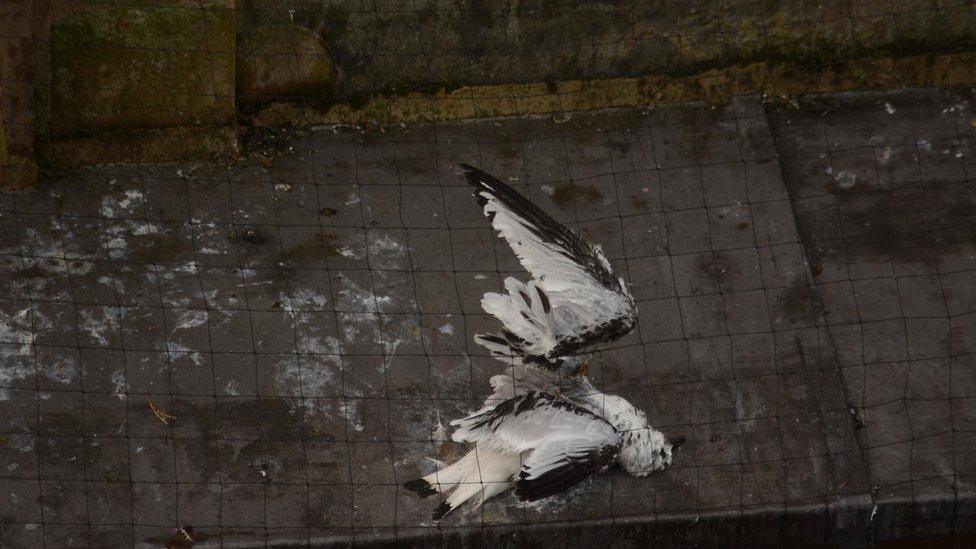
Newcastle City Council said it takes 'great care' to protect the birds
The black-legged kittiwake was added to the International Union for Conservation of Nature's Red List of Threatened Species, external in December.
Newcastle City Council said it is investigating and takes "great care" to protect kittiwakes, providing additional nesting sites where practical.
It said it works with an ecologist whenever businesses want to install a deterrent.
A statement said: "The instillation of bird deterrents such as netting or spikes outside the breeding season between September to February is allowed if done correctly."
Premier Inn said it "appreciates and sympathises" with the concern but does not own the building.
"However as a responsible business we are actively engaged in conversation with building owners to understand how they plan to resolve the issue with urgency," a statement said.
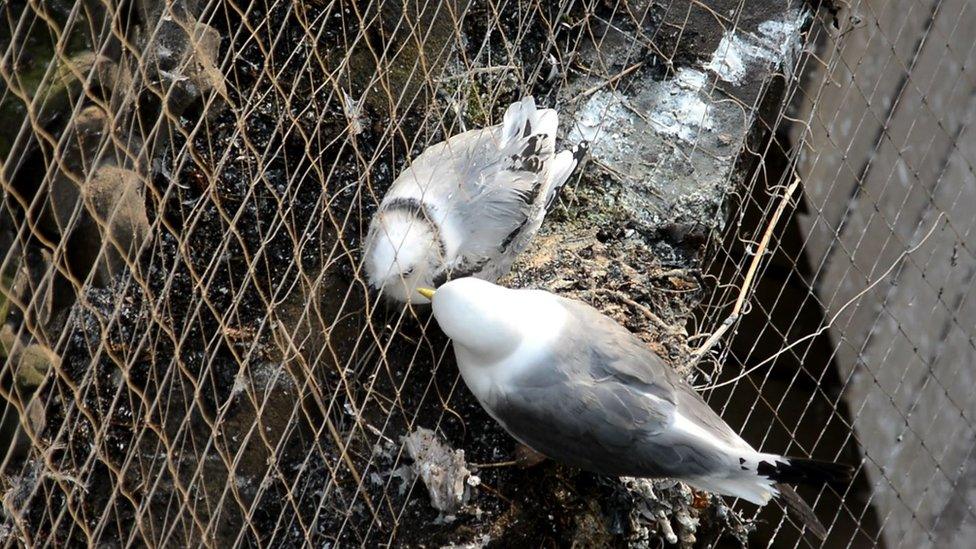
The black-legged kittiwake is on a list of birds at high risk of global extinction
- Published17 December 2017
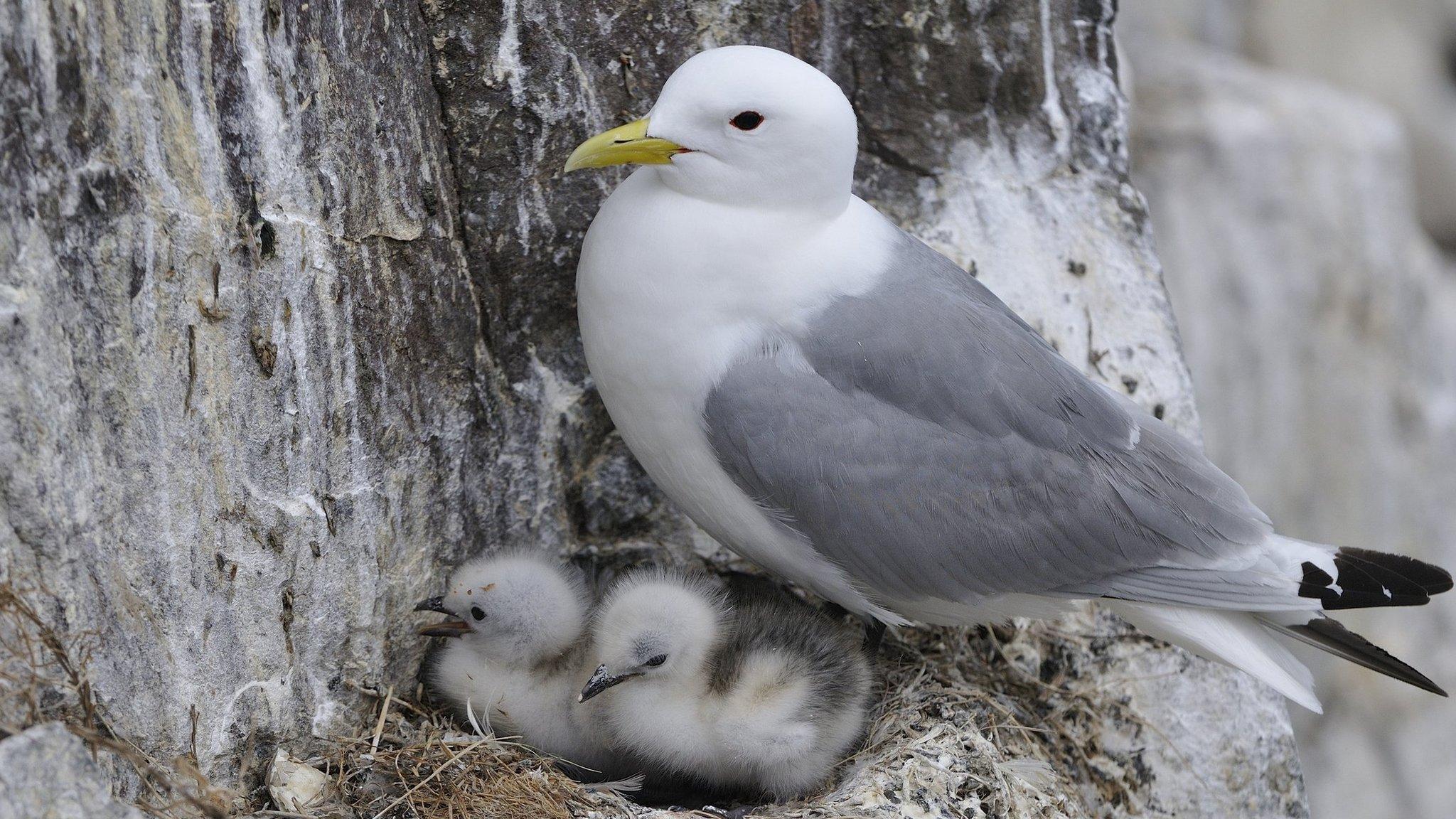
- Published12 December 2017
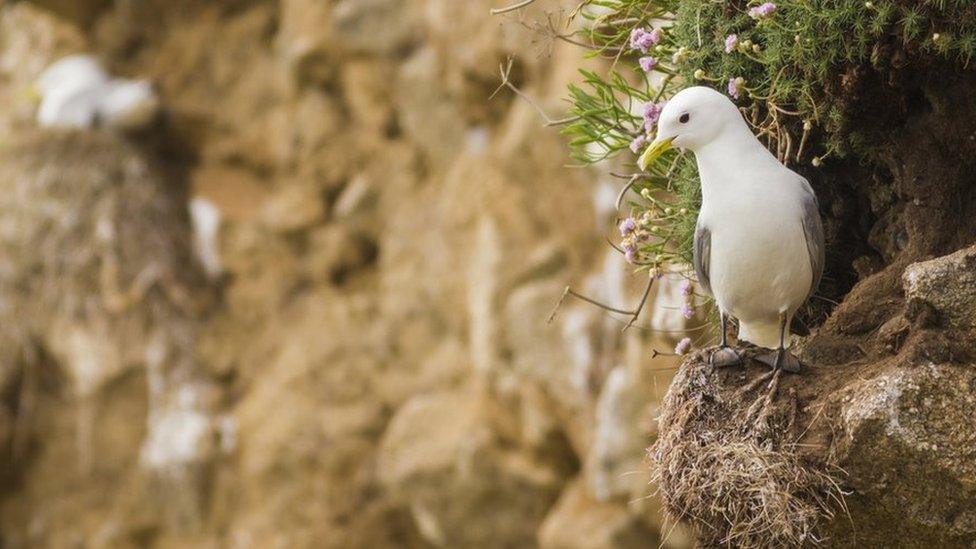
- Published7 December 2016
